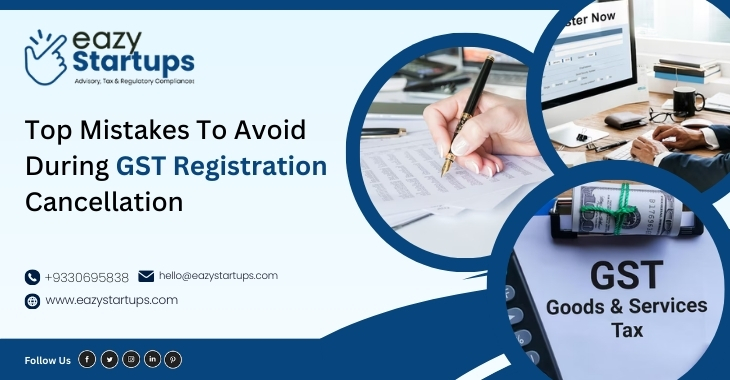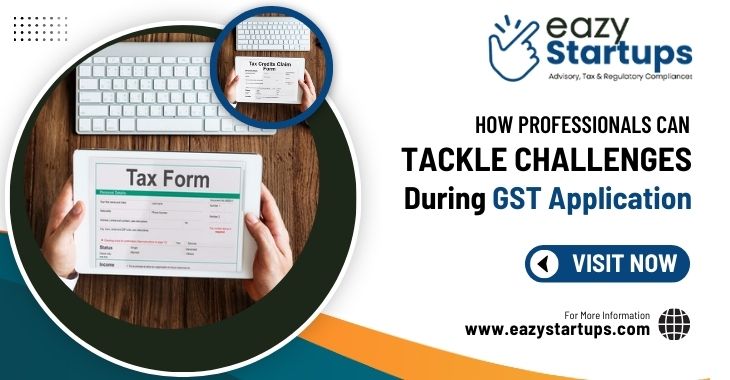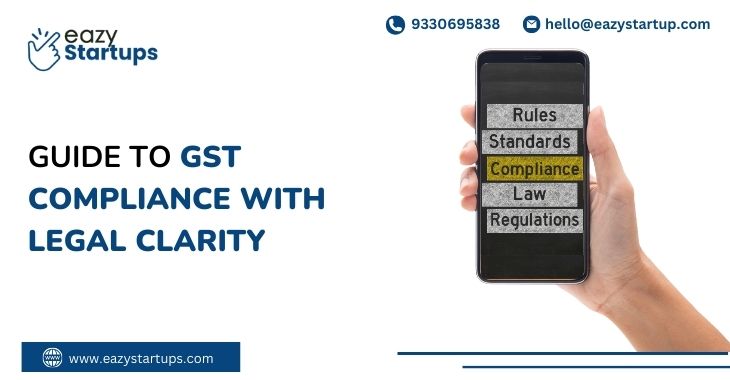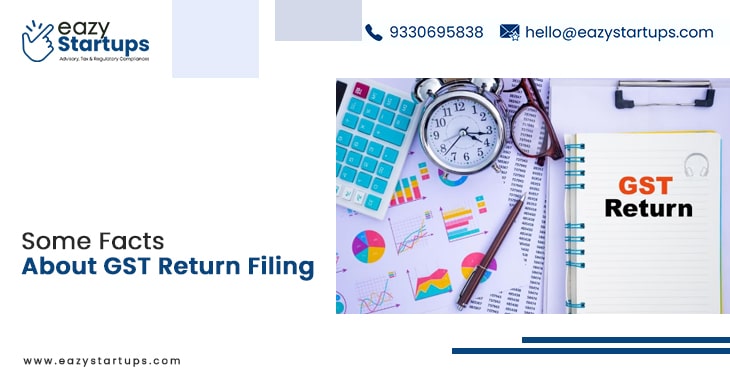For companies that no longer need a GSTIN (GST Identification Number), cancelling a Goods and Services Tax (GST) registration is an important procedure. The cancellation process must be conducted carefully, regardless of whether you’re shutting your company, merging, or dropping below the GST level. If this isn’t done, there may be fines, problems with compliance, or audit difficulties. Here are the main blunders you should avoid when requesting the GST Registration Cancellation to guarantee a seamless process.
Let’s delve into the topic:-
1. Ignoring Outstanding Liabilities
2. Not Submitting Complete Returns
3. Not Surrendering Input Tax Credit
4. Giving False Information
5. Canceling Registration Prematurely
6. Ignoring Follow-Up Notices from Tax Authorities
7. Misunderstanding the Cancellation Process
Ignoring Outstanding Liabilities:
Failing to settle all existing GST liabilities before filing for cancellation is one of the most frequent errors enterprises make. Businesses are required by the GST law to pay all of their debts, including unpaid taxes, interest, and penalties. Your application may be denied, and further penalties may be applied if you continue without settling any outstanding debts.
Tips: Before filing the cancellation request, create a final GST return and settle all outstanding balances.
Not Submitting Complete Returns:
Businesses must file a last return, GSTR-10, after electing to withdraw their GST registration. This necessary step is often missed by enterprises, which can cause the cancellation process to stall or be delayed. There is a ₹10,000 fee for not filing GSTR-10 within the allotted time.
Tip: File your final return within 3 months of cancellation approval or the order date, whichever is earlier.
Not Surrendering Input Tax Credit (ITC):
When a business cancels its GST registration, it frequently neglects to reverse its Input Tax Credit (ITC) on the capital goods or stock that was available. As part of the cancellation procedure, the ITC that was used for business purposes must be returned to the government or reversed.
Advice: Carefully calculate the ITC that will be reversed and include it in your final return (GSTR-10).
Giving False Information:
If the cancelation application contains errors, it may be rejected or subject to additional delays. Inaccurate GSTIN information, mismatched company names, and unfinished paperwork are examples of common mistakes, which result in more back-and-forth with tax officials.
Advice: Before submitting, double-check all of the information you enter in Form GST REG-16 and verify the accuracy and completeness of the supporting documentation.
Canceling Registration Prematurely:
Sometimes, companies quickly withdraw their GST registration without fully comprehending the repercussions. For example, even if business operations suddenly resume, a cancelled GSTIN cannot be utilized to issue invoices or collect ITC. Furthermore, some companies remove their GST registrations while liabilities or refund claims are still ongoing, which causes needless problems.
Advice: Confirm that your company no longer needs a GSTIN before requesting cancellation. Consider any anticipated refunds, liabilities, and pending returns.
Ignoring Follow-Up Notices from Tax Authorities:
Businesses may receive follow-up notices from tax authorities seeking further details or clarity after submitting a cancellation request. If you disregard these notifications, your application may be rejected.
Advice: Look for notifications on the GST portal. Answer questions or fulfill requests from authorities.
Misunderstanding the Cancellation Process:
Several procedures are involved in canceling a GST registration, including filing returns, clearing outstanding debts, and submitting an application. Many businesses make blunders because they don’t comprehend the legal requirements or actions needed.
Advice: Get acquainted with the procedure for cancelling GST and, if necessary, seek expert help. GST advisors can help you navigate the procedure and satisfy all conditions.
Conclusion
If done carefully and clearly, cancelling a GST registration can be simple. You can save time, money, and frustration by avoiding typical errors, such as forgetting to complete final returns, ignoring pending liabilities, or giving false information. Businesses can guarantee a smooth cancellation without incurring needless fines or rejections by being aware of the procedure and abiding by GST regulations. To get help with your GST Registration Cancellation, contact Eazy Startups.











Recent Comments